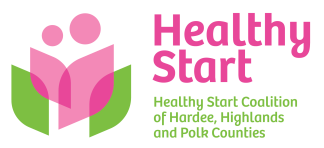Congratulations on your pregnancy! It’s an incredible journey that will transform your life. We’ve got you covered if you’ve just found out you’re expecting and are a few weeks into it!
As you prepare for the adventure, you should know some essential things about the first trimester of pregnancy. Allow us to guide you through this exciting time.
First trimester of pregnancy: What Is It?
The first trimester is the initial stage of pregnancy when a woman is expecting her first child. It begins on the first day of her last menstrual period, even before she gets pregnant, and lasts until week 13 of pregnancy. During this time, from conception to birth, the baby undergoes several stages of development.
During these initial months, a lot happens for both mom and baby. Knowing what’s ahead can help you get ready. Here’s a quick overview of how your baby grows in the first trimester.
First Trimester Shifts: What Happens in Your Body
Every pregnancy is unique. Some women feel healthy and radiant during the first three months, while others experience various changes. Here are some differences you might notice in your body:
Slight bleeding: About 25% of pregnant women experience light bleeding during the first trimester. Early on, spotting could indicate that the fertilized egg has implanted in your uterus. If you notice heavy bleeding, cramping, or intense stomach pain, contact your doctor.
Morning sickness: Nausea and vomiting, often called morning sickness, can occur anytime. Hormonal changes in the body cause it, and it usually starts around the sixth week of pregnancy. For some women, it can last throughout the entire first trimester.
Fatigue: Your body is putting in extra effort to nurture your growing baby, which can lead to increased fatigue. Take breaks and rest when needed throughout the day. Ensure that iron-rich foods are included to prevent anemia, which can worsen fatigue.
Constipation: During pregnancy, a progesterone hormone slows down muscle movements in your digestive system. It can cause constipation and gas. The extra iron in prenatal vitamins can also add to this discomfort, making you feel bloated throughout your pregnancy.
Baby’s First Trimester Growth
Your baby undergoes remarkable growth and development during the first trimester of pregnancy. Here’s what happens during these initial 13 weeks:
- Your baby begins as a fertilized egg, rapidly dividing and implanting itself in the uterus to form a cluster of cells. This cluster eventually develops into the umbilical cord, amniotic sac, and placenta.
- The nervous system develops from a neural tube, eventually connecting to the brain and spinal cord. By around week 6, your baby can even move on its own!
- The heart starts forming and beating. By the 6th week, you might hear the heartbeat during an ultrasound, with a rate of 120 to 160 beats per minute.
- Your baby’s digestive system begins to develop with the kidneys and intestines.
- While not fully developed, essential organs such as the lungs are already forming.
- The soft skeleton begins to shape, laying the foundation for bone development.
During these early weeks, your baby experiences incredible growth, which sets the stage for further development throughout the pregnancy.
Safety Measures for the Initial Month of Pregnancy
Hydration is Key: Water is essential during pregnancy! Drink eight glasses daily to keep your body working well and avoid getting dehydrated. Adding fruits or cucumbers to your water can make it taste even better.
Are you eating for Two: Reality or Myth?: As the saying goes, it’s important to prioritize quality over quantity. Ensure that vegetables, fruits, whole grains, lean protein, and beneficial fats are balanced in your diet. It’s essential to have variety in your meals! Get vital nutrients like folic acid from foods like leafy greens and fortified cereals to help prevent congenital disabilities.
Immunizations: Some shots are safe for pregnant women and are recommended. Talk to your doctor about your vaccine history, and make sure you’ve had all the recommended shots, like the Tdap vaccine (for tetanus, diphtheria, and pertussis) and the flu shot.
Listen to Your Cravings: Cravings are usual, and sometimes, you might like eating unusual combinations like pickles and ice cream. It’s okay to give in to cravings occasionally but choose the healthy foods your body needs most. Pay attention to what your body is telling you.
Extra Tips for the First Trimester
Establish a Support System: During this transformative time, seek the company of caring family and friends who can offer practical help and emotional comfort.
Practice Mindfulness: Try pregnancy yoga or meditation to ease anxiety and find inner calm.
Celebrate Milestones: From feeling those first flutters to watching your baby bump grow, acknowledge and enjoy each small victory during your pregnancy. It is an exciting time; cherish every moment. Remember, you’re creating a miracle, so embrace the changes and savor the anticipation.

